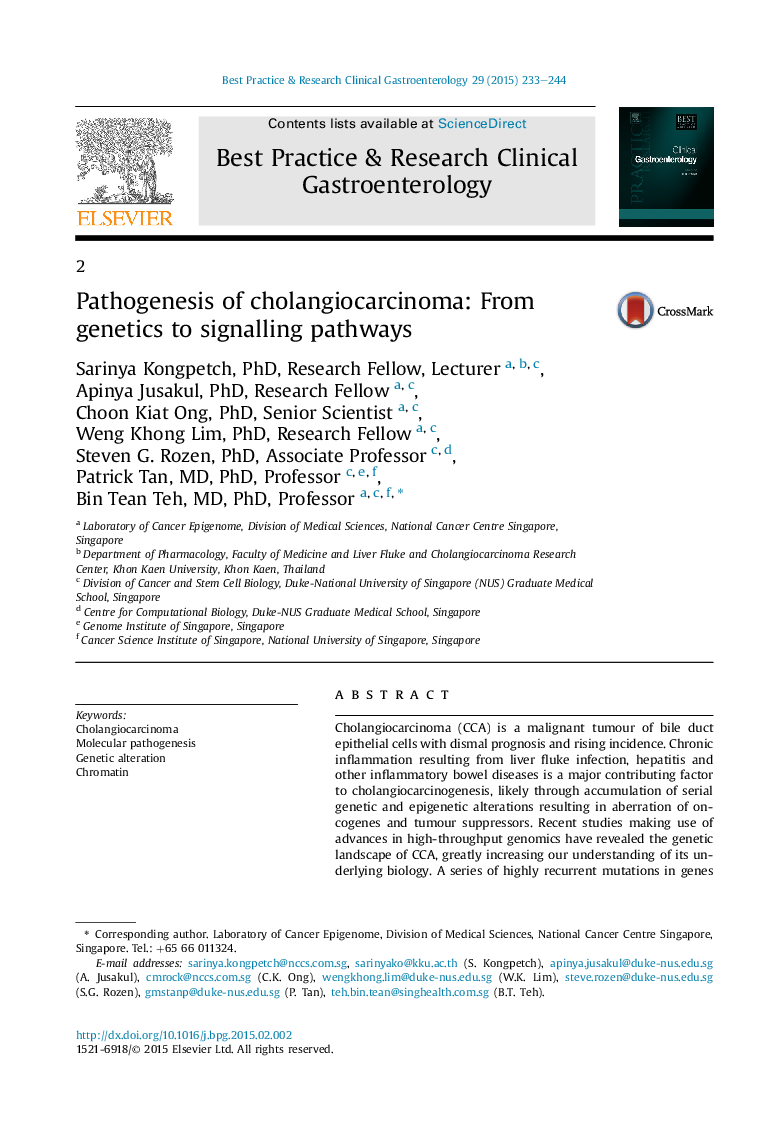| Article ID | Journal | Published Year | Pages | File Type |
|---|---|---|---|---|
| 3254322 | Best Practice & Research Clinical Gastroenterology | 2015 | 12 Pages |
Cholangiocarcinoma (CCA) is a malignant tumour of bile duct epithelial cells with dismal prognosis and rising incidence. Chronic inflammation resulting from liver fluke infection, hepatitis and other inflammatory bowel diseases is a major contributing factor to cholangiocarcinogenesis, likely through accumulation of serial genetic and epigenetic alterations resulting in aberration of oncogenes and tumour suppressors. Recent studies making use of advances in high-throughput genomics have revealed the genetic landscape of CCA, greatly increasing our understanding of its underlying biology. A series of highly recurrent mutations in genes such as TP53, KRAS, SMAD4, BRAF, MLL3, ARID1A, PBRM1 and BAP1, which are known to be involved in cell cycle control, cell signalling pathways and chromatin dynamics, have led to investigations of their roles, through molecular to mouse modelling studies, in cholangiocarcinogenesis. This review focuses on the landscape genetic alterations in CCA and its functional relevance to the formation and progression of CCA.
